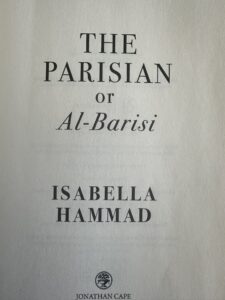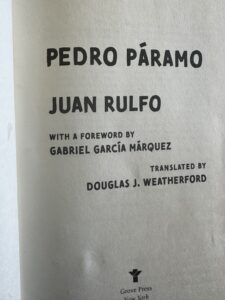
At the age of 27, the Palestinian British writer depict wonderfully the period Palestine underwent in the first two decades of the twentieth century , through the thorough and detailed description of Madhat, one of her great grandfather’s history form the moment he left Nablus to Constantinople, then to Mont Pellier & Paris, and back to Nablus again. The novel unfolds through 551 pages, in three Parts, where history, fiction, love, despair, frustrations, uproar, all intermingled in a Balzacian style that did not leave a stone unturned, whether in the phycological sphere of personalities or the historical facts that accompanied the plot and paved the scene for the whole novel. Her Second novel: Enter Ghost,(Genfærd ind-in Danish) 2023, 390 pages, is another masterpiece of this young talented writer that oblige you to rethink all past events and animate them through vivid and human characterisation. The warm & intense descriptions by Isabella Hammad of the streets, the cafes, restaurants, theaters-Playing & reviving Hamlet on Ramalla’s stage , contradictory feelings, angriness, frustrations, family disputes, flowers’ scents , mediterranean waves in Haifa’s sea shore, in Dhaishi camp_ Sonia’s identification with Rasheed’s hunger strike until his death, or other well known places in all Palestine where past history interchanged and intermingled with nowadays occupation and repression; reminds me of the meticulous approach of Jabra Ibrahim Jabra in “al-Bahth ‘an Waleed Mas’ood-The Search for Waleed Masood”‘s novel, or Elias Khoury’s “Gate of the Sun”-Bab al-Sham”s novel, and their wonderful retrospective reminiscences of the protagonists’ past. “Hamlet” played by the actors. especially Mariam as a woman who played the role of Hamlet in teh drama, and among open audience near the checkpoint of Qalandiya refugee camp, while settler soldiers regard the play, makes every Palestinian rehearse with Hamlet: “to be or not to be, that is the question”.
It is an enjoyment to read Isabella’s marvelous novels and looking ahead for the third coming novel.
